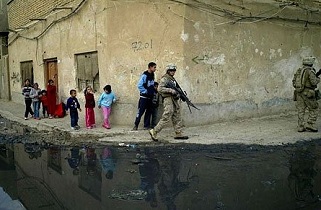Beware Market Extremism

The Legacy Of Milton Friedman: Thatcher’s policies caused
widespread chaos in Britain. Moment of defeat. After 51 weeks
out, miners' lodge members meet at Easington Miners' Welfare
Hall to discuss the end of the strike. (Photo: Keith Pattison)
Market fundamentalism is to be given free reign; never mind that it was the erroneous notion “the market knows best” that brought us the economic depression engulfing western societies. Austerity programmes and cuts are causing distress, hardship and misery to the majority of people in the west. This same blind belief in markets is also blighting the lives of billions more worldwide. Those who are the true believers in the divinity of the market want less regulation; health and safety regulations at work - forget it; this is red tape devised by bleeding heart liberals and misguided leftists. Employment protection laws, fairness at work; oh no, this is stifling business and enterprise, and should be abandoned.
The Conservative government of Great Britain, with the connivance of the Liberal Democrats, is busy slowly dismantling the institutions that are working for the common good and serving the people. The National Health Service, if the health and social care bill is to become law, will be salami-sliced into a disjointed health service where private providers and businessmen compete for a slice of the resources, with profits pumped up from the poor and middle classes to the super rich, to the detriment of the service for the many. The Prime Minister, David Cameron, asserts that the bill will be implemented in spite of opposition by almost all the medical professionals. The “we know best” arrogance of politicians is breathtaking.

































